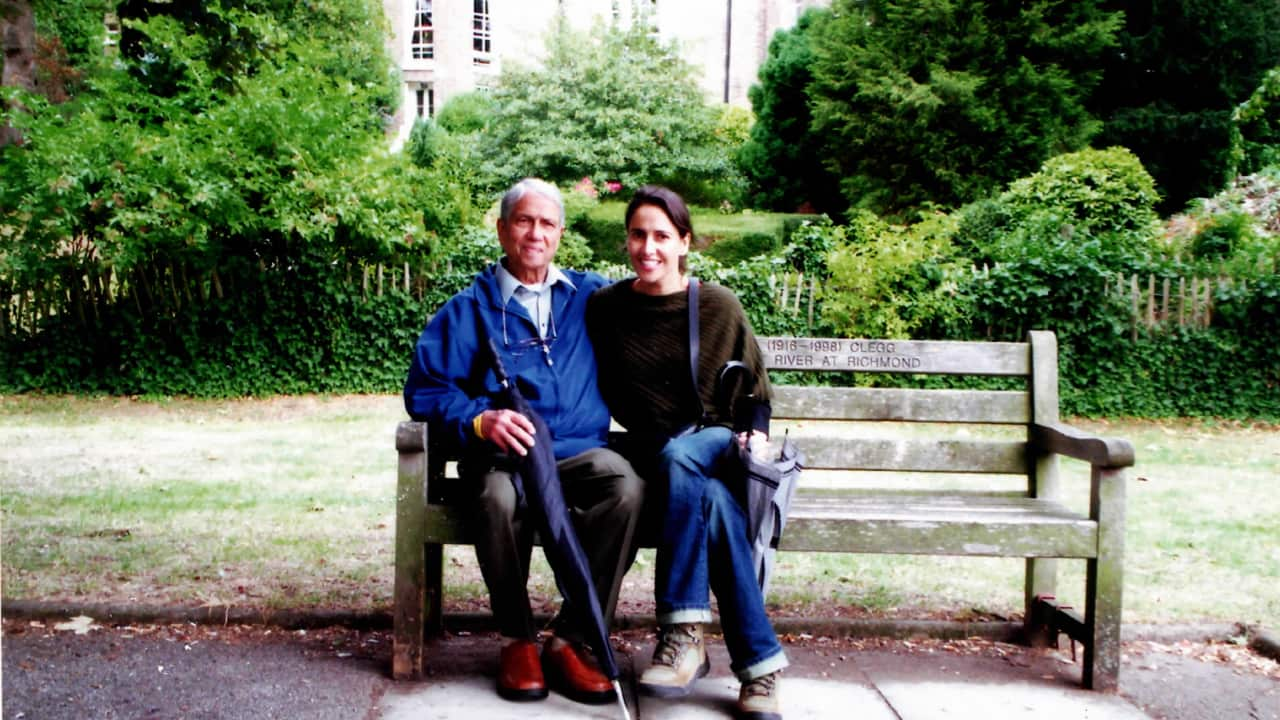Leaving or receiving an inheritance can lead to family tension and divide. Insight looks at how to transfer wealth without damaging family relationships. Watch on SBS On Demand
You’ve just learned your inheritance is … $500. How do you feel?
It happened to me. I am one of nine children in a first-generation, Anglo-Indian migrant family.
When my father died aged 95, he bequeathed us each this final gift. And my heart melted.
Monetarily, it was a modest inheritance. Metaphysically, it was off the charts.
You see, there was not a day growing up that I felt unloved, unsafe, or unfed. It’s a trifecta every child deserves, yet so many miss out on. Whatever unfolded in our lives, these core elements never wavered.
For years, we had all encouraged dad to enjoy this nest egg. We were now each self-sufficient, due to my parents’ sacrifices. They toiled to pay 96 years of private school fees. Yes, 96 years. Still, Dad was lovingly determined to provide for us one final time.
The family chose a mixture of tangible and intangible ways to enjoy our inheritance. My husband Jon and I relished a weekend in the country, and we toasted dad at dinner. One sibling bought a piece of furniture, another indulged in a small painting. A brother-in-law encouraged my sister to select a lovely pair of earrings by which to remember our father.
C’mon, some ask. Wouldn’t it have been nice to be gifted a mansion, or diamonds the size of ice-cubes? Sure. But here’s the thing: I believe if we want someone else’s life, we’ve got to take their whole life. We can’t cherry-pick. No one knows what that person endured behind closed doors. Their breathtaking inheritance might come with a side-serve of issues that would peel the lining off our lungs.

Alicia Young with her parents and her husband Jon.
There was no real estate or heirloom jewellery, but there were heirloom memories passed down. Rest assured, they accrue in value every year.
Besides, so much else comprised my wealth transfer:
Hospitality: Like many cultures, Anglo-Indians express our love through food. Visits home meant consuming half our body weight. I confess: I poke and prod everyone who crosses our threshold to eat something—including tradies. It’s imprinted at a cellular level. I’ve got better, or maybe I’m just kidding myself.
Discretion: At least, I hope that I’ve inherited this. Dad always encouraged us to help others in a way that preserved their dignity.
Physically: I was a late bloomer; I couldn’t have found curves with a compass and a search party. I would joke that I inherited my father’s chest. I do have his eyes and full lips. And Jon says I cover my face when I can’t stop laughing, just like Dad.

Alicia on her wedding day with her parents.
Gratitude: Bless them, my folks settled everything in part-payments. Today, when a bill arrives and I can pay it in whole, it still gives me pause. I’ll never take that for granted.
A Love of News and Current Affairs: Around eight, I was allowed to stay up with my father to watch an election. I didn’t understand a word, of course—but I understood winning and losing from the playground. Mostly, I relished feeling so grown up next to Dad. It’s no surprise I became a broadcast journalist. Even today, I feel his presence in my books.
Work Ethic: We each inherited a killer work ethic because while there was always an emotional safety net, there would be no financial safety net. This fostered initiative.
Navigating Change: My parents left behind their families, their entire support network, and good jobs. In India, mum and dad had domestic staff. In Australia, they became a hospital kitchen worker and a cleaner, respectively. They embraced a new country and a radically new culture amid ongoing struggle, for us. I reflected on this even more in recent years when I moved from the headspace of news to the heart-space of writing spiritual books. I’d like to tell you it was an easy transition, but sometimes courage is incremental. Still, their experience leant perspective.
Who will inherit our estate? Mostly, total strangers—via causes we love. We don’t have kids (we forgot). Naturally, we’ll leave gifts to loved ones. But the majority will go to charities here and abroad. Locally, that means Vinnies. In India, it’s non-profits in the City of Widows (Google it!), and those educating Dalit children (the caste formally known as Untouchables).
Meanwhile, I would not trade my own inheritance for anything.
This story was written by Alicia Young - www.aliciayoung.net












